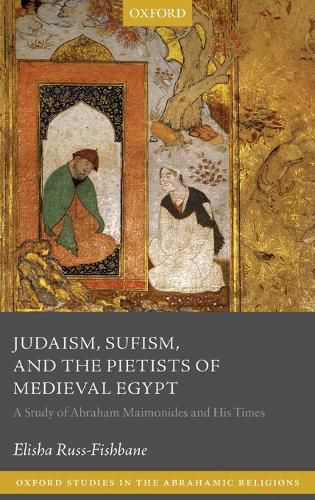Readings Newsletter
Become a Readings Member to make your shopping experience even easier.
Sign in or sign up for free!
You’re not far away from qualifying for FREE standard shipping within Australia
You’ve qualified for FREE standard shipping within Australia
The cart is loading…






Judaism, Sufism, and the Pietists of Medieval Egypt addresses the extraordinary rise and inner life of the Egyptian pietist movement in the first half of the thirteenth century. The creative engagement with the dominant Islamic culture was always present, even when unspoken. Dr Russ-Fishbane calls attention to the Sufi subtext of Jewish pietiem, while striving not to reduce its spiritual synthesis and religious renewal to a set of political calculations. Ultimately, no single term or concept can fully address the creative expression of pietism that so animated Jewish society and that left its mark in numerous manuscripts and fragments from medieval Egypt.
Russ-Fishbane offers a nuanced examination of the pietist sources on their own terms, drawing as far as possible upon their own definitions and perceptions. Jewish society in thirteenth-century Egypt reflects the dynamic reexamination by a venerable community of its foundational texts and traditions, even of its very identity and institutions, viewed and reviewed in the full light of its Islamic environment. The historical legacy of this religious synthesis belongs at once to the realm of Jewish culture, in all its diversity and dynamism, as well as to the broader spiritual orbit of Islamicate civilization.
$9.00 standard shipping within Australia
FREE standard shipping within Australia for orders over $100.00
Express & International shipping calculated at checkout
Judaism, Sufism, and the Pietists of Medieval Egypt addresses the extraordinary rise and inner life of the Egyptian pietist movement in the first half of the thirteenth century. The creative engagement with the dominant Islamic culture was always present, even when unspoken. Dr Russ-Fishbane calls attention to the Sufi subtext of Jewish pietiem, while striving not to reduce its spiritual synthesis and religious renewal to a set of political calculations. Ultimately, no single term or concept can fully address the creative expression of pietism that so animated Jewish society and that left its mark in numerous manuscripts and fragments from medieval Egypt.
Russ-Fishbane offers a nuanced examination of the pietist sources on their own terms, drawing as far as possible upon their own definitions and perceptions. Jewish society in thirteenth-century Egypt reflects the dynamic reexamination by a venerable community of its foundational texts and traditions, even of its very identity and institutions, viewed and reviewed in the full light of its Islamic environment. The historical legacy of this religious synthesis belongs at once to the realm of Jewish culture, in all its diversity and dynamism, as well as to the broader spiritual orbit of Islamicate civilization.